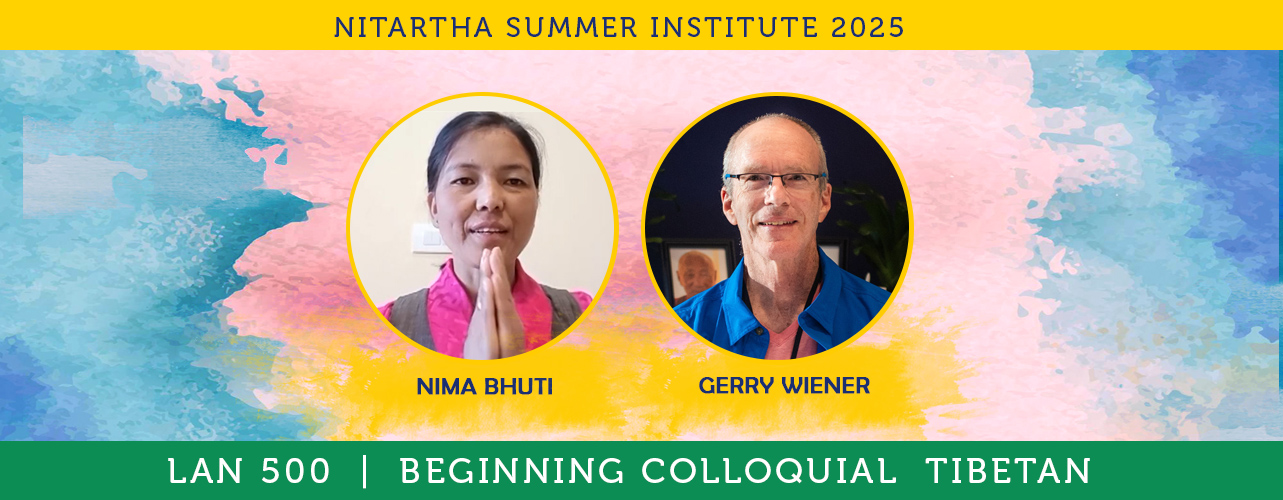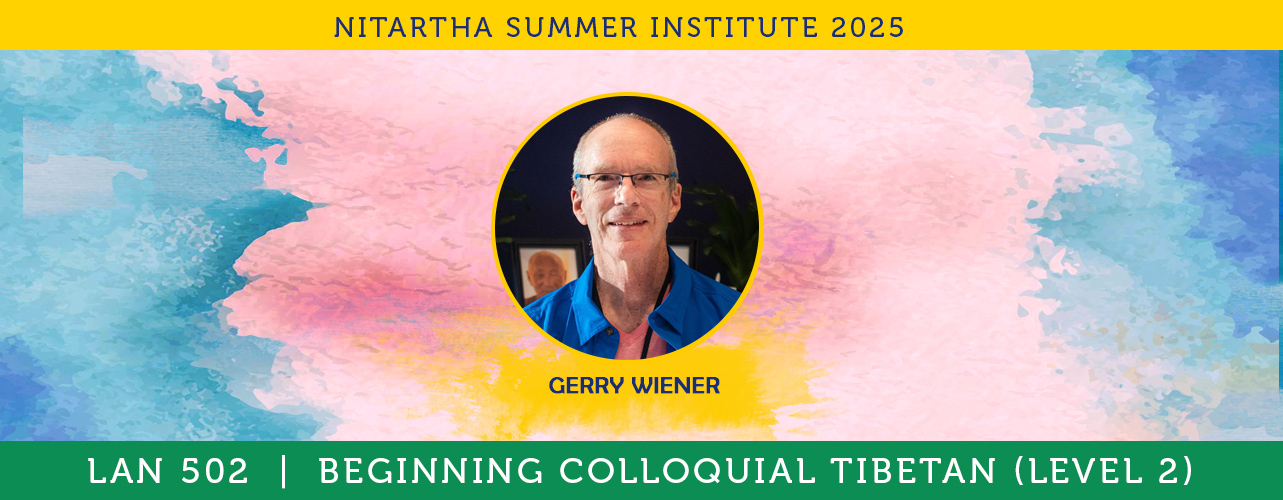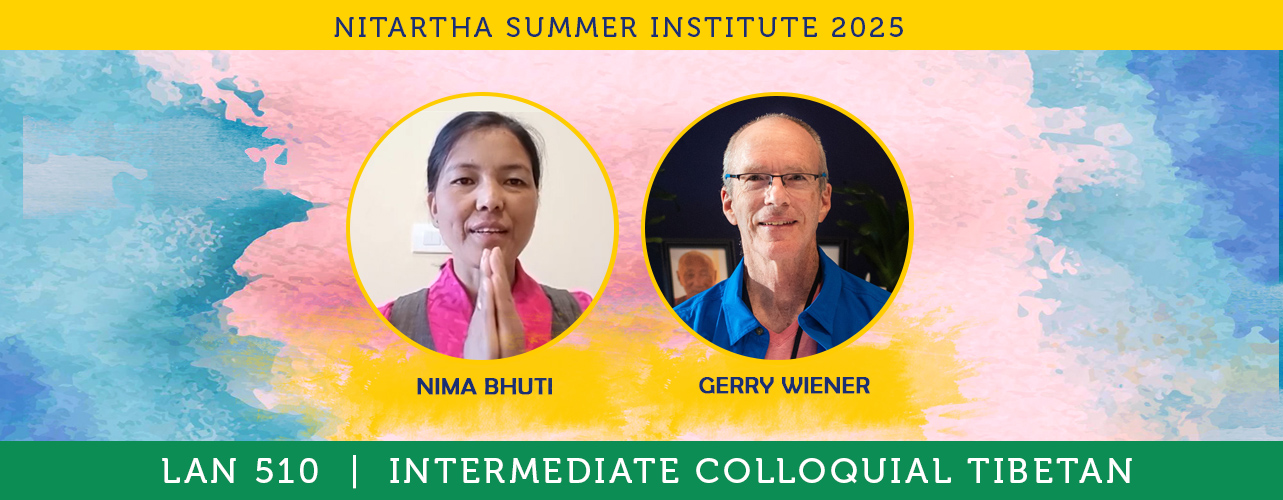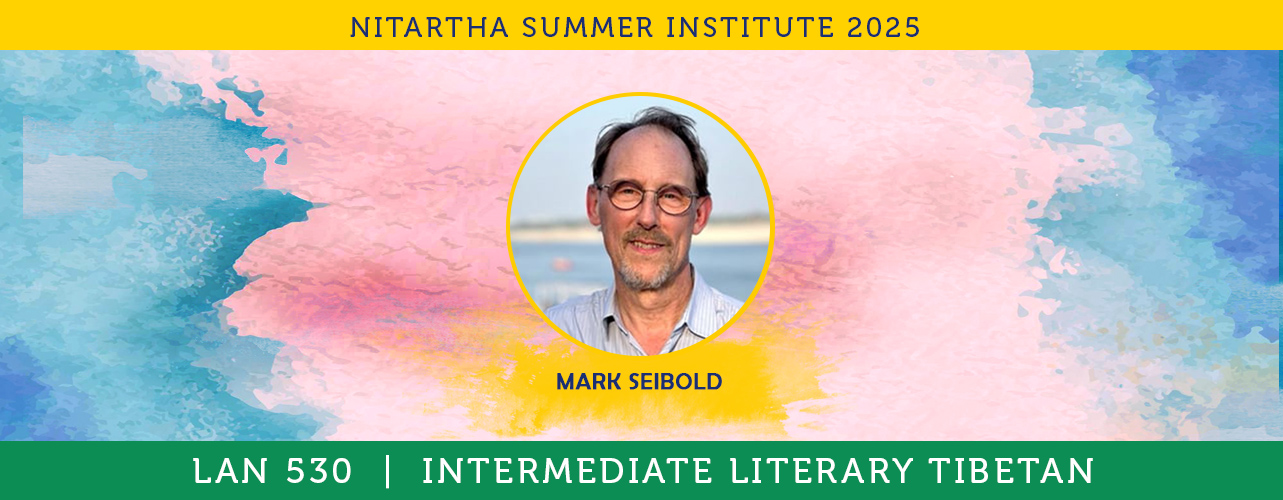
This class is oriented toward students who have no experience or little experience with colloquial Tibetan. During the Summer Institute, we will introduce the eight categories of Tibetan letters, how to spell Tibetan words aloud, how to pronounce Tibetan letters and words, and how to read and write Tibetan. We will also introduce some useful phrases and sentences.
Faculty/Instructor(s): Nima Bhuti, Gerry Wiener
Language(s): English

This course is for students who have already learned the Tibetan alphabet and have familiarity with reading and pronouncing Tibetan words and sentences. Lessons will focus on improving pronunciation, reading, and comprehension and will involve a significant amount of drilling and pattern substitution.
Faculty/Instructor(s): Gerry Wiener
Language(s): English

This course is for those students who already have some established grounding in colloquial Tibetan. The focus will be to gain further fluency in reading, speaking, listening, and understanding Tibetan using the Central Tibetan dialect. Classes are mostly in Tibetan with minimal English.
Faculty/Instructor(s): Nima Bhut, Gerry Wiener
Language(s): English

Reading Tibetan Literature is dedicated to reading Tibetan Buddhist texts and literature from original source texts and commentaries in the Kagyü and Nyingma traditions. The choice of text for Nitartha Summer Institute 2025 will be announced before the start of the Summer Institute.
This course assumes a general familiarity with Tibetan grammar. The level of difficulty is roughly equivalent to second year Tibetan at the graduate level. Students will be asked to prepare passages to present in class for review and analysis. The foci of the course are (i) developing familiarity with Tibetan grammar, (ii) cultivating reading skills and (iii) gaining facility with using commentaries to unpack a root text. Interesting and important grammatical points will be explained in the context of specific passages.
Opening and closing chants are done in Tibetan. Students are encouraged to practice reading aloud to learn the rhythms and feel of the phrasing of the language.
In Session 1, we will translate a selection of chants, liturgies and legendary histories (such as the origin story of the Boudhanath stupa, known in Tibetan “Cha-rung Kashor.“ In Session 2, we will read a few short selections from a posthumously published transcript of talks by Khenchen Trangu Rinpoche on the Third Karmapa, the Omniscient Rangjung Dorje’s Aspiration of Mahamudra, The Definitive Meaning” (ངེས་དོན་ཕྱག་རྒྱ་ཆེན་པོའི་སྨོན་ལམ།).
This course assumes a general familiarity with Tibetan grammar. The level of difficulty is roughly equivalent to second year Tibetan at the graduate level. Students will be asked to prepare passages to present in class for review and analysis. The foci of the course are (i) developing familiarity with Tibetan grammar, (ii) cultivating reading skills and (iii) gaining facility with using commentaries to unpack a root text. Interesting and important grammatical points will be explained in the context of specific passages.
Opening and closing chants are done in Tibetan. Students are encouraged to practice reading aloud to learn the rhythms and feel of the phrasing of the language.
In Session 1, we will translate a selection of chants, liturgies and legendary histories (such as the origin story of the Boudhanath stupa, known in Tibetan “Cha-rung Kashor.“ In Session 2, we will read a few short selections from a posthumously published transcript of talks by Khenchen Trangu Rinpoche on the Third Karmapa, the Omniscient Rangjung Dorje’s Aspiration of Mahamudra, The Definitive Meaning” (ངེས་དོན་ཕྱག་རྒྱ་ཆེན་པོའི་སྨོན་ལམ།).
Faculty/Instructor(s): Mark Seibold
Language(s): English
